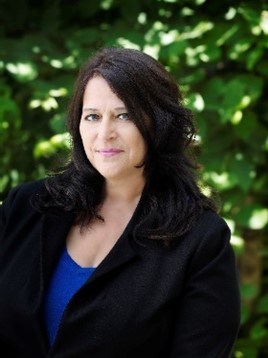Educating children is challenging (though rewarding) under the best of circumstances, but as students, parents and teachers all know by now, the onslaught of COVID-19 restrictions and virtual learning from home has made it more challenging than ever.
These days, work-at-home parents vie for computer time with children and teens trying to complete their virtual studies.
It can be particularly challenging for parents with special needs children.
However, Sheena Smith, a Huron-Superior Catholic District School Board (H-SCDSB) educational assistant, has authored and released a book of advice and tips for parents entitled All Kids Can Thrive: A Holistic Educational Resource for a Successful and Conscious Classroom.
Smith writes from personal experience.
“Right now we have myself and three kids learning online on computers at home...(that includes) my two grandchildren and they’re with a different school board (Algoma District School Board) and different learning programs...they come Monday to Friday for school because their parents are both working. I have my 14-year-old son with Down syndrome and my 23-year-old daughter with spina bifida (home from Toronto, keeping safe with mom at home in the Sault during this current COVID hot spot time in the GTA).”
“The book is tips and tools for educators, counsellors, EAs (educational assistants), teachers, school administrators, ways for working with children whether they’re special needs or not special needs. It’s behaviour management, self awareness, help with social and emotional control, helping them figure out lagging skills, it’s tips and strategies for helping everyone,” Smith said, speaking to SooToday.
The book was three years in the making, begun prior to COVID, but Smith said “everything in the book can be implemented for use now. It’s good for parents.”
Smith shared a real-life example of what it’s like in a busy, online, work at-home, learn-at-home environment, recounting a set of circumstances which arose just prior to a telephone conversation with SooToday on Monday.
“My son with Down syndrome took the computer outside. My daughter was having an allergic reaction. My granddaughter in Grade 3 was having a hard time connecting to the internet and my grandson was finished and on his break, and wanted a snack. So there’s four people all needing something at once while I’m online with my work (as an education assistant, helping oversee 18 to 20 Grade 1 students in a virtual environment).”
“I told my son to bring the computer in and take a break. I gave my daughter Benadryl. I told my granddaughter to wait because it’s almost her break, and my grandson...I gave them all snacks.”
“The tip with that is that if it was a student in our class having a meltdown because their pencil broke or they couldn't find their crayons, if they’re hungry, have to go to the bathroom, we just say ‘go ahead. If you need a break, take a break.’”
Simply put, both students and their parents need to know when to relax in the interest of maintaining their own mental health, Smith said.
“It’s hard to focus for a long time online. The kids need to move.”
“For other parents, I would just say it’s really important to make sure they’re getting breaks too, because a lot of the parents are having to sit right beside their children to help them do their work.”
“It’s important for them (students) to have routine and written schedules, but it’s also important to be flexible, because there are distractions in your house.”
While making sure your children receive their education virtually is a serious matter, don’t take it all too seriously to the point where you’re endangering your own mental health and that of your children, Smith said.
“The number one thing is keep your humour. If your son takes the computer outside or to the bathroom, what are you going to do? It’s a huge challenge,” Smith said with a chuckle.
Apart from keeping your sense of humour, a list of tools and tips for parents Smith has compiled includes:
- Deep breathing
- Proper rest/sleep
- Drink water often
- Eat nutritious foods
- Talk to others
- Reach out for help, knowing you’re not alone
- Get fresh air and spend time in nature
- Have a positive mindset
- Express gratitude often
- Focus on what is good
- Be flexible
- Have written schedules and supplies all set and ready
- Be kind to yourself
- Drink good coffee (for adults only, Smith laughed)
- Love
“All kids can thrive with the right tools and love, and love matters most,” Smith said.
All Kids Can Thrive: A Holistic Educational Resource for a Successful and Conscious Classroom was self published, released May 1 and available online.
Smith said her book will also be available through the Sault’s Stone’s Office Supply beginning this week.
